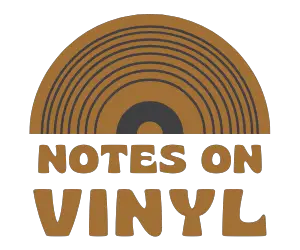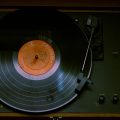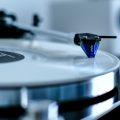Looking for some tips on how to get started collecting vinyl records? Then you have come to the right place!
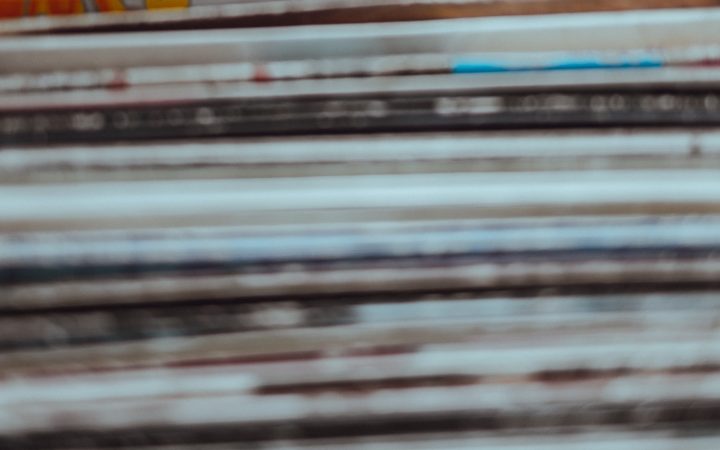
Table of Contents
- Top Tips for Starting a Vinyl Collection of Your Own
- Why Collect Vinyl?
- How to Collect Vinyl Records
- 5 Vinyl Collecting Tips for Beginners
- Building a High-Quality Collection
- Digital vs. Analog: The Vinyl Advantage
- How to Store Your Records
- How to Clean and Maintain Your Records
- Troubleshooting Your Record Player
- Key Takeaways for Collecting Vinyl
- Final Tones
- FAQs Collecting Vinyl Records
Top Tips for Starting a Vinyl Collection of Your Own
- Explore local record stores and thrift shops to find bargains and build your collection affordably.
- Inspect the actual disc before buying, especially if it’s a used record, to ensure it’s in good condition.
- While original pressings are often preferred, don’t let this stop you from purchasing a record you really want.
- Trust your instincts and collect records that genuinely interest you, rather than just following “all-time greatest” lists.
- Collect records out of love for the music and to support your favorite artists, not just because it seems cool.
- Store records vertically to prevent warping, and avoid using milk crates as they can bend and damage the records.
- Use proper storage solutions, like modular shelving units, and keep records in a temperature-controlled room away from heat sources.
- Clean your records regularly using a carbon-fiber brush to remove dust, and consider investing in a record-cleaning machine for deep cleaning.
- Use anti-static sleeves and acrylic platter mats to reduce static build-up on your records.
- Keep your turntable away from sources of vibration, or use isolation platforms to minimize the impact of external vibrations on playback.
Why Collect Vinyl?
Before we take a look at how to collect vinyl records, let’s take a look at 10 reasons why you might like to start your own vinyl collection.
1. Exploring the City
What’s a more entertaining way of getting out and around a city than heading to some vinyl stores to check out their selections?
Grab some coffee at a local shop, maybe even a little bite to eat, and then hit the vinyl shops – some even have their own cafes in store!
2. Ephemera
Along with fun artwork, LPs come with a bunch of other enjoyable ephemera that you don’t necessarily get with other formats, including inserts, posters, and sometimes even movies!
3. Majestic Artwork
Physical media often comes with artwork that can enhance your listening experience. The jacket has artwork on both sides and if your jacket is a gatefold, the inside has artwork will be majestic as well.
Sometimes, as above, there are inserts and posters that you don’t get with a digital release of an album. The color of the vinyl record itself might also be themed around the album.
4. Listening Experience
Each vinyl record comes with its own quirks that lend themselves to an eccentric listening experience. You can expect to hear a low hum, surface noise, and even small cracks or pops.
Vinyl is also sometimes mastered differently than its digital counterpart, so you’re going to hear a different sound completely than that of a digital recording.
5. Searching
There’s nothing more fun and/or fulfilling than searching the record bins for a hidden gem and then finding it. Imagine finding your Holy Grail out in the wild!
6. Physicality
Physical media can sometimes feel much better than a digital format because it’s something you can grab and touch.
When the record fully plays through one side, it’s time to grab it and flip it over. Nothing beats the tactile physical connection between a person and their record collection.
7. Displaying
Vinyl can be a real spectacle in your house as a tangible display that you can exhibit to those who visit your humble abode.
Sometimes, it can be a hassle finding the proper setup for storing records, but having a collection of anything in your home can look very appealing to the eye and is, ultimately, probably worth the strife.
8. Friendship
If you’re looking for a hobby that can help you build connections with other like-minded people, then record collecting is for you!
Vinyl collectors tend to be very passionate about collecting and they hangout at places where other vinyl collectors do, like the record store. Of course, this has changed a little in the era of the online vinyl stores like Discogs, but these communities are still thriving on the internet. You automatically have something in common with collectors immediately even if your tastes differ considerably.
9. Investing
If you have records that you don’t want to pass on to someone else, don’t worry because buying records can also be an investment.
Resale prices of records oftentimes skyrocket, though this is always a difficult thing to ascertain at the time.
10. Antiques
Due to the collectability of vinyl records, this is a fast-growing hobby that is easy to get into without too much effort, despite the relative expense of vinyl records nowadays.
They can be passed down through generations, too, if you take good care of your records. Records are timeless and that’s why you see so many old ones at shops. They age in their own way and each record has its own uniqueness to it that makes it a one-of-a-kind artifact, hence why so many see fit to collect such an outdated medium of music in a cold digital world.
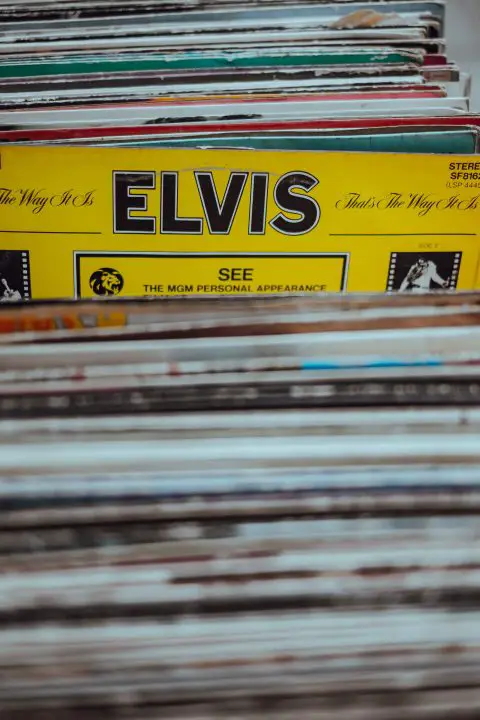
How to Collect Vinyl Records
One of the coolest things about shopping for vinyl records is the record stores themselves. Each one is a microcosm, a world apart from the one outside.
Where to Buy Records
The owner of a record store is likely to have an enviable encyclopedic knowledge of every vinyl in the store, and if you’re friendly, they can be a valuable source of information about the best vinyl records to collect, based on your tastes.
If you play your cards right, you may even get an early tip-off when something unique enters the shop, especially since they are the curators of the collection on display. Still, you could always use an online vinyl store like Discogs to get your goods.
The first thing to know about collecting vinyl records is to trust your eyes and your instinct, both of which will get stronger as you go.
When you find an album, take it out and inspect it for quality. There is often a tiny sticker in the upper corner denoting the quality of the record, but take this with a grain of salt — it may be a bit optimistic in some cases. When you inspect an album, try to see past the dust that will inevitably have collected on some of them. Instead, look for visible scratches.
New vs Second-Hand
If in doubt, go up to the owner and ask to listen to it on a turntable with some headphones. If it is damaged, don’t think twice — put it back on the shelf. You can find a functioning copy somewhere else. If the record looks undamaged but dirty, the store might be able to clean it for you. Typically, the shop staff have the materials to clean records on hand.
Original vs Reissue vs Bootleg
At some point, you will run into the issue of bootleg records. The first sign is that they are often suspiciously cheap. Now before you go casting any judgment, know that the quality of bootlegs can range from zero to excellent.
Lightweight vinyl is possibly bootlegged, as the bootleggers will attempt to print the record on cheaper, thinner material, though there is a general trend where vinyl used to be thinner back in the day.
5 Vinyl Collecting Tips for Beginners
Are you just starting out on your journey of collecting records? Want to know some of the key tips for getting started, the kind of facts that most seasoned collectors wish they had heard before starting out?
Then come on in from the cold, dark night of ignorance as we explore 5 key tips for getting properly started with vinyl collecting.
1. Cheap, Cheap, Cheap
One of the key facets of real vinyl collecting is looking out for bargains. In this way, you should start collecting record more affordably.
Your local record store is all well and good, but thrift shops will no doubt have more great stuff than you could ever have imagined. Even your local record store will usually have a bargain section where you can fill up your record collection.
Record stores are great and are a good asset to have but make sure you are not paying too much money for a vinyl record.
2. Examining
Unless the record that you are buying is brand new and still sealed, you are best advised to inspect the actual disc before buying it and adding it to your vinyl collection. There really are no guarantees in the world of audiophilia.
Think about all the records that the owners of record shops have to label. If any record collector were forced to do such work, they would eventually make a mistake. Not to assume, but this could well have happened with your own record label.
Many record stores are overworked and also will not blame you for wanting to examine the goods. It is, in fact, a common practice.
3. Originals
There is a lot of talk on the audiophile market that suggests you should go with original pressings as often as possible. While this is likely good advice to follow, it should not necessarily stop you from purchasing a record you are really yearning for. In these instances, anything would likely do, even digital downloads.
Thus, do not let your vinyl sales hinge on this tenet of collecting records. Sure, the sound quality will be marginally better for limited edition releases like original pressing, but you have to ask yourself whether it is worth the wait. Bootleg records factor into this too.
4. Classics
Common knowledge says that if you are unsure where to start, then you should try a list of all-time greatest records like the Rolling Stone list. This is surely nonsensical, though. Why would you do such a thing when you could purchase the records that actually interest you in the first place?
If you can’t name any recorded music off to the top of your head that you would like to physically own, then there really is no use in buying a record player and becoming record collectors.
5. Loving
Indeed, the best advice you can receive when it comes to collecting records is simply to trust your own instincts. So often, people will start collecting records simply because they think it is cool and singles them out as an individual. Really, it is not only a great way to show that you love a piece of music but also to support your favorite artists.
If you are going into record collecting with the former attitude, then you really have no hope of continuing with it for long. If there is no love or interest in music there, then what is the point?
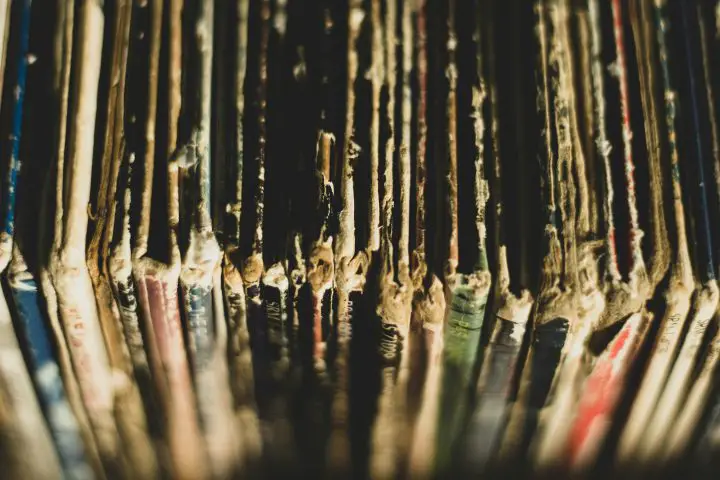
Building a High-Quality Collection
When it comes to curating your vinyl collection, quality is key. Sure, you could amass a huge collection of records, but what’s the point if they’re all scratched up and sound terrible? Here are some tips for building a high-quality vinyl collection that you’ll be proud to show off.
Finding Rare Records
One way to elevate your collection is by seeking out rare and hard-to-find records. This could mean limited edition pressings, out-of-print albums, or even original pressings from decades ago. Hunting for these gems can be a thrilling experience, and landing one feels like striking gold.
To find rare records, you’ll need to do some digging. Check out specialty record stores, online marketplaces like Discogs, and even yard sales or thrift shops. You never know where a rare find might be hiding!
Grading Vinyl
When you’re buying used records, it’s important to know how to grade their condition. Most sellers use the Goldmine grading system, which ranges from “Mint” to “Poor.” A Mint record is virtually perfect, while a Poor one is heavily damaged and may not even play properly.
Familiarize yourself with the grading system and always check the seller’s grading before making a purchase. If possible, inspect the record in person to verify its condition. Don’t be afraid to pass on a record if it doesn’t meet your quality standards.
Investing in Quality
Building a high-quality vinyl collection often means investing in quality equipment as well. A good turntable, preamp, and speakers can make a world of difference in how your records sound.
Don’t skimp on the essentials like a good needle and cleaning supplies either. Taking proper care of your records will help maintain their sound quality for years to come.
Remember, curating a high-quality vinyl collection is a process. Take your time, do your research, and don’t settle for subpar records just to grow your collection quickly. Focus on quality over quantity, and you’ll end up with a collection that’s the envy of any vinyl enthusiast.
Digital vs. Analog: The Vinyl Advantage
When it comes to the great debate between CDs and vinyl, one of the key points of contention is sound quality. While CDs offer a clean, crisp digital sound, many audiophiles argue that vinyl’s analog sound is superior. Let’s dive into why vinyl often comes out on top in this showdown.
The Warmth of Analog
One of the most common descriptions you’ll hear about vinyl’s sound is that it’s “warm.” But what does that actually mean? Essentially, analog sound waves are continuous, meaning they capture the full range of frequencies and dynamics in a recording. This leads to a more natural, lifelike sound that many find more pleasing to the ear.
Digital recordings, on the other hand, break the sound into a series of discrete samples. While this allows for a very clean and precise sound, some argue that it can feel a bit cold or sterile compared to analog.
The Beauty of Imperfection
Another aspect of vinyl’s appeal is its embrace of imperfection. The slight crackles, pops, and hisses that come with playing a record are seen by many as charming reminders of the format’s analog nature. These imperfections can make the listening experience feel more intimate and authentic.
Of course, not everyone appreciates these extra noises. But for vinyl enthusiasts, they’re an integral part of the experience.
The Mastering Difference
It’s also worth noting that many albums are mastered differently for vinyl than they are for digital formats. Vinyl mastering often prioritizes dynamic range, allowing for a wider spectrum of soft and loud sounds. This can lead to a more engaging and emotionally impactful listening experience.
Digital mastering, in contrast, often employs heavy compression to make the music sound consistently loud. While this can be effective for casual listening or certain genres, it can also flatten the music’s dynamics and make it feel fatiguing over time.
The Ritual of Vinyl
Beyond just the sound quality, part of vinyl’s appeal lies in the ritualistic nature of playing a record. Carefully selecting an album, gently placing it on the turntable, and lowering the needle all become part of the listening experience. This level of engagement can make you feel more connected to the music.
With CDs or streaming, the act of listening can feel more passive. There’s something to be said for the intentionality and appreciation that comes with spinning a record.
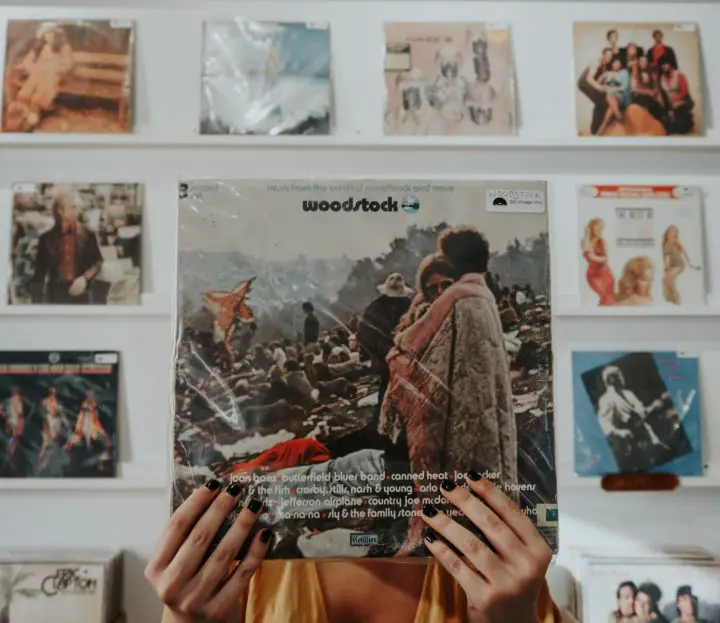
How to Store Your Records
There are so many options on how to display and organize your records, including these 10 great ideas, but there are a few simple basics.
Storage Types and Spaces
First of all, make sure to always store your records vertically – do not stack them, for it puts too much weight on them, a force that can warp your records, making them difficult to pull out without scratching, in turn, affecting the way the record spins as well.
While we’re at it, try to avoid using milk crates for storage. Although milk crates are quite popular and tantalizingly cheap, they’re flexible. This means once you’ve loaded one up with records, it can bend, putting stress on the records that can lead to warping. They also tend to tear up record sleeves.
Considering proper record storage methods, IKEA and similar companies make some excellent vinyl storage options. Best of all, many of these are modular, meaning you can continue adding more shelves as your collection grows.
- Narrow shelves help you use small wall spaces effectively By accommodating small items in a minimum of space.
Prices pulled from the Amazon Product Advertising API on:
Product prices and availability are accurate as of the date/time indicated and are subject to change. Any price and availability information displayed on [relevant Amazon Site(s), as applicable] at the time of purchase will apply to the purchase of this product.
Other Tips for Organizing Your Record Collection
Some other things to consider:
- Make sure the records are in a temperature-controlled room preferably free from humidity.
- Keep records well away from any heat sources such as radiators, baseboard heaters, wood stoves, or fireplaces.
- Keep the records in anti-static plastic sleeves to prevent static electricity from causing damage over time.
How to Clean and Maintain Your Records
One of the most important things to consider when collecting vinyl records is to ensure that you are taking proper care of them, cleaning them as often as you can, though not so often that you are destroying them. This has been covered elsewhere, but let’s just recap.
One of the best tools you can buy is a carbon-fiber brush to get dust out of the records. As you can imagine, it is crucial to use this tool with a delicate touch.
- Clean and protect your vinyl collection — Our vinyl record brush quickly and easily cleans your records before every spin. Dual-row extra-soft carbon fiber bristles gently lift harmful dust and dirt from the vinyl surface. No vinyl cleaner liquids or gels required.
Prices pulled from the Amazon Product Advertising API on:
Product prices and availability are accurate as of the date/time indicated and are subject to change. Any price and availability information displayed on [relevant Amazon Site(s), as applicable] at the time of purchase will apply to the purchase of this product.
Digging into the grooves can scratch the record. To use the soft brush, place the edge on the vinyl and sweep the dust toward yourself. You can then remove any excess with the back of the brush. Repeat this several times until there is no more dust.
The best way to keep your records clean is to do a quick brushing before every listen, though. This way, you won’t have to dedicate any large chunk of time to clean all your records at once. Note that you should buy an anti-static brush, as static is the enemy of records.
Man or Machines?
However, brushes are not for any sort of deep cleaning. They are purely for removing dust. To perform a deep clean, you’ll need to use a machine, like a Spin-Clean Record Washer, a Groove Washer, or an Okki Nokki.
A decent record-cleaning machine will, of course, set you back a couple of hundred dollars. However, they will be solely responsible for cleaning your vinyl and keeping it fresh for decades, especially if you intend to sell records more than you buy them.
To use one, clamp the record on and spread cleaning liquid over it with a brush. The record cleaner comes with a vacuum to suck this liquid up, which removes all the grime that has accumulated on it.
If you can’t afford the machine, use the poor man’s method – wood glue and a spreading stick. Pour a large amount of wood glue over the entire surface of the record, making sure you have a good coating on every part. Let it dry for 24 hours and then pull it off — all the grit will come with it.
Of course, for many users, it is enough to simply use a clean cloth or two, some distilled water, and some dish soap, a method which is just as effective, though perhaps not as economical with your time if you are looking to do it all in big batches.
Troubleshooting Your Record Player
Though we have previously explored this topic in greater detail, let’s look at some common problems and their solutions relative to your own record player.
Warped Disc
There are several methods you might use to fix your warped disc, though this will likely be easiest and most convenient, for this method only requires owning two heavy objects.
These objects ought to be large enough to cover the entire surface of the record and heavy enough to flatten the whole surface back into shape over time.
Two oversized books are oft considered ideal for this, though anything of the sort will do just fine, so long as the entire surface is covered on both sides.
Static
There are several popular solutions here, all of which involve acquiring a specific product. There are such things as anti-static record sleeves that you might keep your records and sleeves in, to prevent static electricity from building up in the first place of its own accord.
Acrylic platter mats boast similar properties in seeking to reduce the amount of static electricity sent through the turntable itself to the disc in question, the chemical material and composition of the acrylic working to prevent this wholly.
In contrast to these more preventative measures, there are such products as the anti-static carbon fiber brush, which, instead, aim to tackle static head-on after it has built up, purporting to work simply by sweeping at a record and removing static in seconds.
Dust, Dirt & Grime
Being made entirely of grooves, it is all too common for the grooves of a record to become marred by dirt or dust in this way.
It will thus be useful to give the record(s) in question a closer inspection with a magnifying glass. Though you might sometimes be able to see the dust with your own eye from a distance, other times a magnifying device will be required to inspect the dust when it is less obvious yet still having an obvious sonic effect.
Nevertheless, it is rarely a bad idea to consistently clean your vinyl record discs, period (see above for more details on how).
Extraneous Vibrations
Are there vibrations coming from within the very room that the turntable is playing in?
If you are lacking in the finances to utterly sanctify your audiophilic environment, then some other adjustments will be necessary so that you don’t need to keep facepalming. Moving the turntable away from the source of the vibrations will make it a world of good.
If this is not possible, however, there are such devices as isolation platforms, which seek to set the turntable away from the external vibrations, constructed with sound-absorbing feet that absorb and mitigate the vibrations that would otherwise knock the stylus and have the record skip and/or distort.
Key Takeaways for Collecting Vinyl
- Start your collection by exploring local record stores and thrift shops to find affordable records.
- Inspect the vinyl disc before purchasing, especially when buying used records, to ensure it’s in good condition.
- Collect records that genuinely interest you, rather than just following popular opinion or trends.
- Store your records vertically in a temperature-controlled room, away from heat sources, and use proper storage solutions like modular shelving units.
- Clean your records regularly with a carbon-fiber brush to remove dust, and consider investing in a record-cleaning machine for deep cleaning.
- Use anti-static sleeves and acrylic platter mats to reduce static build-up on your records.
- Keep your turntable away from sources of vibration or use isolation platforms to minimize the impact of external vibrations on playback.
- Focus on building a high-quality collection by seeking out rare records, learning how to grade vinyl, and investing in quality equipment.
- Understand the advantages of vinyl’s analog sound, such as its warmth, dynamic range, and the unique mastering process used for vinyl releases.
- Engage in the ritual of playing vinyl records, which can create a more connected and intentional listening experience compared to digital formats.
Final Tones
So, there you have it! Hopefully, you are now feeling ready and able to get started collecting vinyl records for yourself!
FAQs Collecting Vinyl Records
Is it worth collecting vinyl records?
This depends on your point of view, though it is undoubtedly worth it if you look at it from the perspective of a collector whose eventual worth might well be increased by owning records that are collectible and rare.
What do I need to know before collecting vinyl records?
When it comes to used records, it’s best to buy from trusted providers who care about the consumer’s listening experience. Inspect records for signs of warping, scratches or chipped edges before you make your selection.
Where do I start collecting records?
If you want the authentic experience, find a record store in your area and go peruse the aisles. Check out the prices, find some obscure bands, and make a few purchases to ease your way in.
What to look for when collecting records?
The most important thing to trust when collecting records is your own eyes and ears. It’s all well and good collecting a bunch of highly-revered and critically acclaimed albums, but where is that going to get you on the vinyl market if you don’t enjoy listening to them or even owning them?
What are vinyl collectors called?
The most common and etymologically accurate term for someone who collects vinyl records is a record collector. Calling someone a vinyl collector, while it would be understood in record-collecting communities, might be confused instead for someone who collects polyvinyl chloride, the material from which records are made. Equally, a record collector is sometimes referred to as an audiophile or something like this. While this also would be understood within certain record-collecting communities, the term itself has more to do with the appreciation of high-quality sound equipment than the collection of records itself. Tread lightly and with care.
Why do people still collect vinyl?
The main reason there has been a massive and largely unprecedented cultural shift toward collecting vinyl records again has a lot to do with a broader societal nostalgia for bygone days that were supposedly simpler. This, though, has aligned itself with the fact that record companies have become worse and worse in their treatment of artists. Nowadays, owing to the ever-burgeoning use of streaming services, buying records and other physical formats (or indeed other physical merchandise) is about the only way you can actually support your favorite artists and allow them to keep making the music that you love from them.
